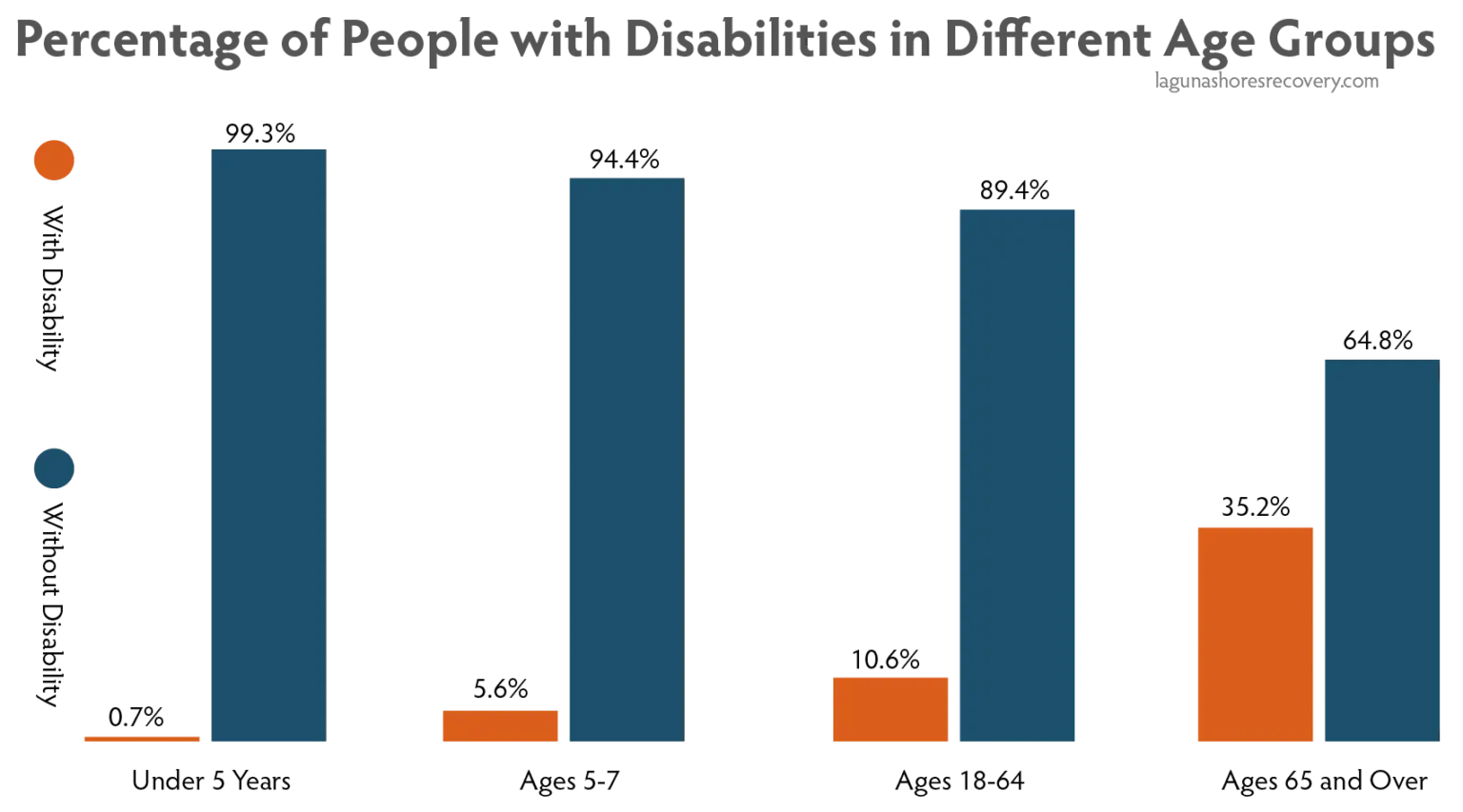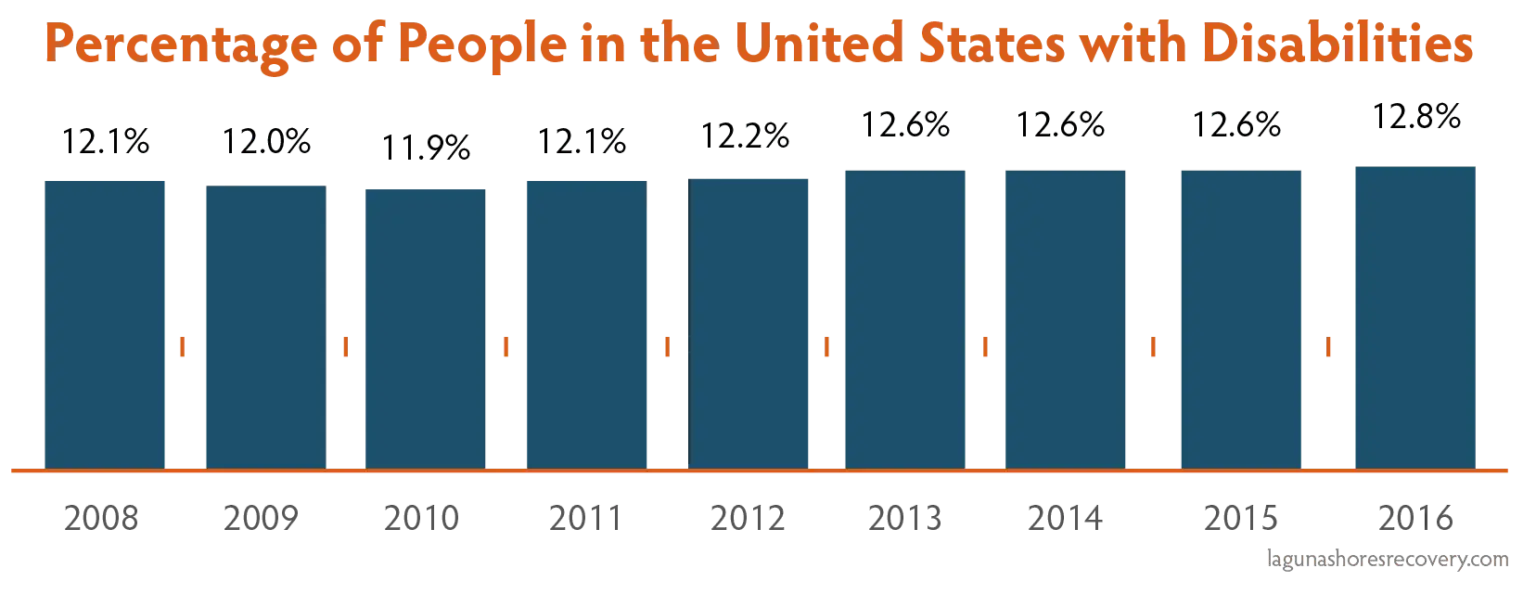Person-First Language
Discover how this way of speaking can reduce stigma in addiction and disability.
The main idea behind using person-first language is to acknowledge people as people first, before any other words are used, rather than referring to them in terms of a diagnosis or condition. Using Person-First Language in regard to addiction means someone is a “person with a substance use disorder,” rather than the more stigmatizing term, “addict.”
This is especially true when conversing with or writing about a person in recovery, whether you’re an addiction specialist working with people in a drug or alcohol rehab setting or are close to a person with a substance use disorder.
Person-first language is widely thought of as being very important to use in order to maintain an environment of dignity, respect, and hope. Using person-first language is also a more accurate way of speaking about people. Placing the person-first and the disability second helps eliminate stereotypes that can form. Putting the person-first when describing someone with a disability or disease can positively influence the images and impressions we form about them.
Disability Advocacy
 The idea of person-first language started within the Disability is Natural community. They explained that each person is much more than their diagnosis. Identifying someone as their disability or diagnosis first is at best an inaccurate representation of who they are or at worst a slur or way to put someone down.
The idea of person-first language started within the Disability is Natural community. They explained that each person is much more than their diagnosis. Identifying someone as their disability or diagnosis first is at best an inaccurate representation of who they are or at worst a slur or way to put someone down.
In general, person-first language works within disability definitions by talking about the person-first, then the medical diagnosis. You may say “Person with a physical disability” instead of “They’re crippled” or, “Person with a cognitive disability” instead of “Mentally retarded”.
Veterans
It’s also important to remember that disability can frequently be a result of environment. Those who have served in the military may also have seen a change to their body as a result of their service and require modifications to support independence.
We might respect our veterans by saying, “He has prosthetics” or “They are struggling with PTSD”.
In general, we personally focus on what we can do, rather than discussing the things we cannot, so it’s polite to extend that courtesy when speaking about others.
Be Brave. Get Help.
Why Words Matter?
Rather than address or refer to someone as a “user,” for example, it’s preferable to change to person-first language and use the term “person who is in recovery from a substance use disorder.” This isn’t a simple matter of political correctness or semantics. When the media understands the nature of addiction, using this more appropriate language style can help eliminate the stigma associated with seeking treatment for substance abuse.
Person-first language is useful when describing people with disabilities and health issues. Instead of saying someone is an epileptic, refer to the person-first: a person with epilepsy. It can be negative to be referred to as wheelchair bound, while saying this person uses a wheelchair, is recognizing the person-first and the disability second.
Every person deserves to be treated with respect and dignity. People suffering with addiction issues as well as those who have a physical or psychiatric disability are first and foremost, people. Stereotypical phrases like “addict” might be used to describe a person undergoing rehab. That can be disrespectful, inappropriate and even prejudicial. Referring to someone in this way, whether it’s in a written report or used verbally, does not take the person into account first.

Identity First Language Is Stigmatizing
Using the term “addict” is known as identity first language. Other terms used to illustrate identity first language are addicted person, handicapped person, and so on. With identity first language, the disability or diagnosis serves as an adjective, almost as though it fully describes the person or people being discussed, which in effect works to stigmatize them.
The preferred terminology, person-first language, is a more objective way to communicate about and with those who have disabilities and also those undergoing addiction treatment. Instead of using negative terms to refer to an individual in this setting, it’s preferable to refer to the person-first and not the diagnosis or the person’s passive role in a medical or recovery-type setting.
Impact of Person-First Language in Addiction Treatment
Using appropriate language in a rehab treatment setting can positively affect the ways individuals view themselves and their ability to make lifestyle changes. Inappropriate language can have the opposite effect by stigmatizing certain groups and depersonalizing someone who is attempting to withdraw substance use from their individual identity.
Person-first language places the words that refer to the individual in front of the words that describe his or her conditions or behaviors. This way of arranging words puts an emphasis on the person, indicating that the condition, behavior, or diagnosis is just one aspect of who the person is and is not his or her only defining characteristic.
Terms That Label People by Their Conditions
It’s more respectful of a person’s dignity and worth to identify them as:
- a person with an opioid use disorder
- an adolescent with an addiction
- people engaged in risky use of substances
- a person struggling with an alcohol addiction
Many Factors Contribute to Addiction
Most often it is not just one thing in life that has led someone to abuse substances. There are a variety of social, cultural, psychological, environmental, genetic and economic components that may be partly responsible for someone’s drug or alcohol addiction. For this reason, and because every person is unique in their experience and makeup, there are many types of treatments and paths to addiction recovery.
Substance addiction is a health condition, not a reflection of a person’s behavior, morals or innate character. This is a disease that doesn’t discriminate: anyone can become susceptible to substance use disorders.
Terms to Avoid in Addiction Treatment
These stigmatizing words can discourage, isolate, shame, and embarrass someone with a substance abuse disorder. Entire groups of people become devalued and excluded from society when identity-first language is used to describe socially unacceptable health conditions. People may decide not to seek the treatment they need because of the stigma and social or economic consequences resulting from the way they’ve been defined.
- Addict
- Abuser
- Junkie
- Alcoholic
- Clean
- Dirty
- Reformed Addict/Alcoholic
- Stoner
- Problem Drinker
- Substance User
- Using/User
- Habit
Preferred Terms and Language in Addiction Treatment
- Person with substance use disorder/condition
- Person with alcohol use disorder/condition
- Some who is not actively using substances
- Person in active addiction
- Person in recovery
- Person engaged in risky use of substances
- Drug-free
- Alcohol and drug disorder/condition
- Alcohol and drug disease
What’s Wrong with the Words that Should be Avoided?
The terms clean and dirty sometimes used when referring to drug test results are offensive, stigmatizing words. They associate symptoms of a disease (i.e. positive drug test) with grime and filth. Preferred terms which discussing drug tests are negative, positive or substance-free.
Using the phrase drug habit or just habit is also a condemnation of someone. It denies the medical nature of the condition and implies that a person only needs more willpower to stop the behaviors of addiction. Instead of the word habit, person-first language prefers substance misuse disorder, alcohol and drug disease or disorder and active addiction.
Referring to someone as a user labels a person by their behavior. It’s preferable to use person who misuses alcohol/drugs or person engaged in risky use of substances.
How to Make a Difference
Take a good, long internal look at your personal feelings, words, or behaviors that might be negative and/or biased in nature. Do you use or automatically think of any of the slang words listed here in relation to someone facing an alcohol and/or drug disease? Remember to put your focus on the person and not the disorder.
Try not to use addiction terms as metaphors, such as stating you are “addicted” to chocolate or saying someone has an “addictive personality.”
When you notice something inaccurate or a stereotype being used in the media, call attention to the situation. Educate other people by providing them with factual information. Speak to someone with an addiction if you haven’t done so already and use person-first language.
If you or someone you love has an addiction issue, tell your story to others. You can also encourage and give power to people with addiction conditions in small ways, sometimes simply by using person-first language.
- Journal of the American Psychiatric
Nurses Association - Perspectives on Disability
- Substance Abuse
- American Psychiatric Association
- U.S. DHHS – SAMHSA Center for
Substance Abuse Treatment


 Matthew Beck B.A, M.A, LMFT
Matthew Beck B.A, M.A, LMFT 


